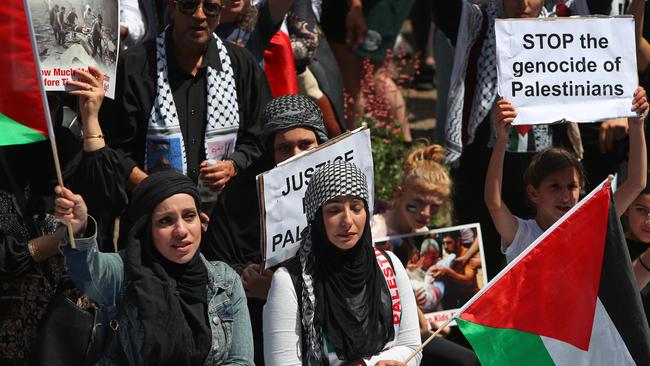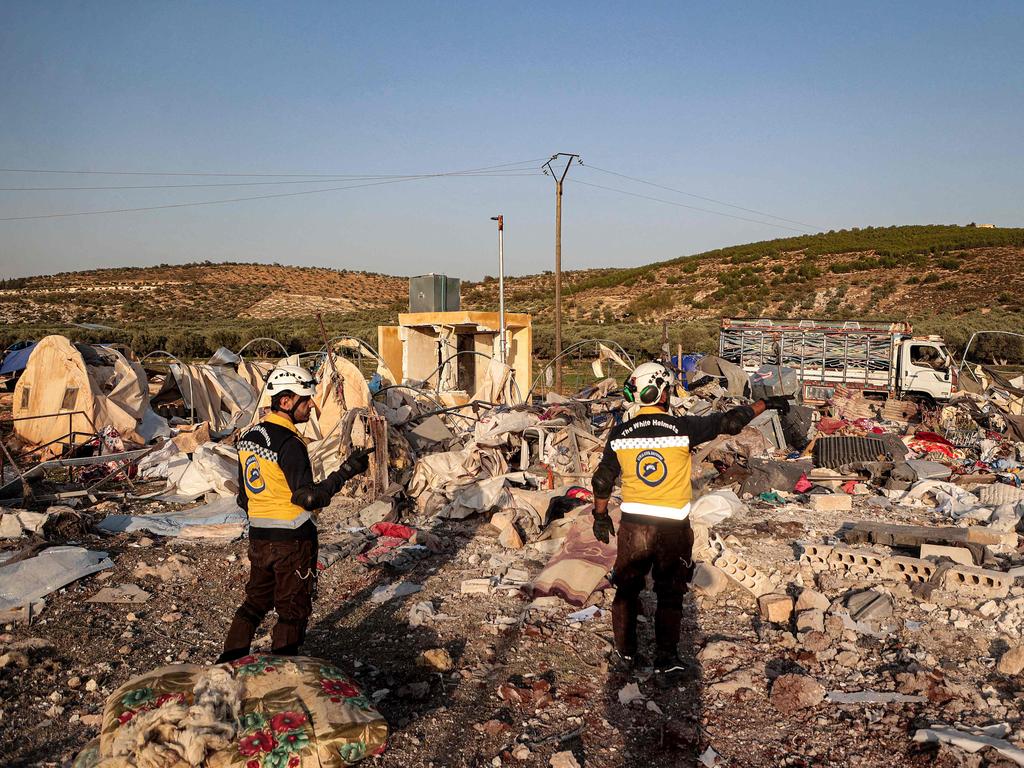Troubling anti-Israel tropes to watch out for in news coverage


There are four predominant tropes: settler-colonial Israel, aggressor-occupier Israel, open prison Gaza, and collective Gazan punishment.
These tropes play a central role in a narrative that when deployed or merely echoed uncritically delegitimises Israel’s defensive action against Hamas.
Worse, they play a role in delegitimising Israel itself. They must be rebutted whenever they insinuate themselves into reporting presented to us.
The first trope, suddenly popular in Australia, is that which describes Israel as an illegitimate, post-World War II settler-colonial state. Some use the trope to equate the experience and claims of Palestinians with those of Indigenous Australians.
There is an historical experience shared by Jews and Indigenous Australians: it is dispossession and indeed sovereignty lost but never ceded. This dispossession is antecedent to that experienced by Palestinians displaced by the war launched by Arab states to prevent the establishment of Israel in 1948.
For Jews, it is not dispossession across decades or even centuries but continual across millennia. Babylonians, Persians, Romans, Christendom, Arabs and Turks forced Jews from their land, exiled them and kept them from reclaiming it.
To this dispossession was added discrimination and persecution in the lands into which they fled or were exiled under repeated imperial conquest. That persecution in Europe culminated in the Holocaust.
Nevertheless, there have always been Jews in the lands now within the borders of the state of Israel. Indeed, part of the historical legacy of that continuing presence is symbolised in the Western Wall in Jerusalem, dating back to a Jewish temple constructed in about 500BC.
There was, it is true, significant migration of Jews from post-Holocaust Europe once the international community righted the history of dispossession by agreeing to the establishment of Israel in 1947. But this migration should be understood not as foreign, colonial implantation but as historical restoration and restitution.
The second trope is that of Israel as an aggressor and occupier of another state’s lands. Indeed, the compressed narrative is reflected in two phrases: occupied territories and occupied West Bank. Given the recency of the relevant history, this trope’s prevalence is harder to understand.
These are the facts: the community of states agreed to establish two states, Israel and Palestine, in 1947. Jewish leaders supported this two-state solution. Arab leaders rejected the decision and launched a war to destroy the new state of Israel at its birth. They lost. Israel survived, was recognised by the community of states and became a member of the UN.
Between 1948 and 1967, Jordan and Egypt controlled what we refer to today as the West Bank and Gaza. Jordan also controlled half of Jerusalem. A Palestinian state could have been created with East Jerusalem as its capital.
Arab states chose not to. Why? They remained committed to a zero-sum position and the destruction of Israel.
Israel was attacked again in 1967. It successfully defended itself again. It won land in its defensive operations against the aggressors in that war.
It had to defend itself again in 1973 and won again.
Part of the land captured in the 1967 war, the Sinai, previously the territory of Egypt, one of the states that had attacked Israel, was returned in exchange for recognition and peace.
Israel still holds land that was once held by imperial powers, has never been part of a state, was intended for a proposed Palestinian state, and which has been offered repeatedly to any state that recognises Israel’s right to exist. The intransigence of Arab leaders on Israel’s right to exist and, originally, on a shared Jerusalem has seen these lands continue as stateless lands, rendering them vulnerable to creeping Israeli settlement.
The third trope: part of the lands won in its defensive war in 1967 was Gaza.
Israel began handing Gaza to Palestinian authorities in 1993, again as part of peace processes intended to include recognition of Israel’s right to exist. The breakdown of that process halted withdrawal in 2000, but Israel unilaterally withdrew from Gaza in 2005, dismantling Israeli settlements and relocating Israelis from Gaza.
Hamas, an Islamist organisation to this day committed to the destruction of Israel, took control, by force, soon after Israel handed Gaza to Palestinian authorities in 2005. Gaza has been a location of attacks on Israel, involving both land incursions and missiles, ever since. Not only Israel but Egypt has imposed security controls on Gaza’s borders as a result.
The porousness of those controls is reflected not just in continued access to essential goods but in the ability of Hamas (with consequent human opportunity costs) to import weaponry to wage war against Israel. Notwithstanding attacks from the territory, Israel has provided access to basic utilities such as water, fuel and electricity for Gazans and allowed thousands of Gazans to work and trade in Israel.
Trope four: Hamas has launched a formal war against Israel from within Gaza. Hamas’s war aims include Israel’s extinction and the creation of a single Islamic state from the Mediterranean to Jordan’s border. The number of Israelis killed, the barbarity of the warfare Hamas wages and that continuing objective justify – under international law – action by Israel to enter Gaza to neutralise attacks and the enemy that continues to launch them.
Ordinary Gazans are now victims in a war that Hamas launched and wages with them as its collective human shield. Israel must win that war. Just as the Allies were forced to enter Germany and Berlin to defeat Nazi Germany, or Vietnam was forced to enter Cambodia and Phnom Penh to remove the Khmer Rouge, Israel has been forced to move against Gaza to neutralise Hamas.
It is tragically ironic that what was first declared as proof of Israel’s disregard for life in such action, destruction at a hospital site in Gaza, turns out to have been caused by a rocket fired from Gazan territory, in Hamas’s continued use of that territory to wage its war against Israel.
Peace could be restored in Gaza, further loss of civilian life prevented and Gazans could live irenic, prosperous lives benefiting from the strength of their neighbours’ economy if Gaza were governed by authorities who simply recognised Israel’s right to exist. It’s not unreasonable to see Hamas’s removal in that regard as a necessary objective in Israel’s response to yet another war being waged to destroy it.
Chris Gardiner is chief executive of the Institute for Regional Security.







A troubling aspect of some journalists’ coverage of the Hamas war against Israel is the spread of ahistorical, anti-Israel tropes. They are often repeated in coverage of pro-Palestinian protests.